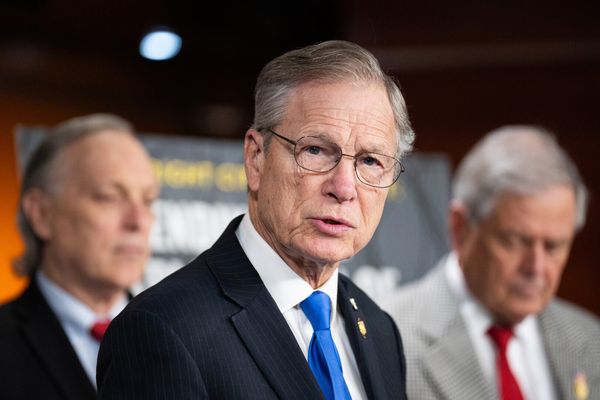
In a world where 'nothing is behaving the way it should', there are plenty of uncertainties for New Zealand's relationship with China – but trade ties between Beijing and Moscow are just one of the areas that Kiwi businesses should be watching closely.
China’s relationship with Russia could have economic consequences for Kiwi exporters if the Asian superpower starts buying up more meat, dairy and seafood from Moscow, a former diplomat says.
The state of relations between China and the West, and what the rest of the 2020s could bring, was among the topics of discussion on the second day of the annual New Zealand Economics Forum on Friday, hosted by the University of Waikato.
Former trade negotiator and Saunders Unsworth consultant Charles Finny said he had “never felt so uncertain about our future in my adult lifetime”, including the geopolitical environment.
READ MORE: * China after the end of 'zero Covid' * NZ's nightmare scenario in Ukraine war
“I understand nothing right now – nothing is behaving the way it should, and we're in a period of real change in terms of major power relations.”
While the American and Chinese governments wanted to improve relations with each other, neither side seemed to know how to do it, while concern about China’s rise remained a unifying issue in US politics.
“It's amazing that probably the world's most divided politics agrees on one thing absolutely, and that is that China is bad, and that China is the threat. That really complicates life for us enormously.”
It wasn’t just the US whose view on China had hardened, Finny added, with similar unease in the European Union, United Kingdom and Japan.
He did not share concerns expressed by others about a potential Chinese invasion of Taiwan, saying Beijing lacked the capability for such a mission and would be too worried about the consequences.
Much of the current China-Taiwan tensions were actually rooted in the stance of the governing Democratic Progressive Party in Taipei, with “a noticeable cooling” likely if the Kuomintang returned to power in 2024.
“Over the next 50 or 60 years, it's [the population] going to halve – it’s probably going to, in per-capita terms, become much more wealthy, but if you're a producer of infant powder and expect a straight line upwards, you've got a problem.” – Charles Finny, former trade negotiator
Finny said China would remain a major market for New Zealand for many years to come, and international students and tourists were likely to return in significant numbers.
However, the country’s economy would not be growing as quickly as exporters had become used to in recent decades, with its population having begun an inevitable decline.
“Over the next 50 or 60 years, it's [the population] going to halve – it’s probably going to, in per-capita terms, become much more wealthy, but if you're a producer of infant powder and expect a straight line upwards, you've got a problem.”
The China-Russia relationship could also become a greater problem for New Zealand businesses, given Russia’s production of dairy, meat, seafood and wood and the potential for greater Chinese investment into the country.
New Zealand and China needed to have a broad relationship that extended beyond trade and allowed for disagreement when necessary, Finny said.
“The view that we can just ignore the things we don't like and just focus on trade and investment, unfortunately, is naive, and I don't think can be the way we operate in the future.”
NZME head of business Fran O’Sullivan said China appeared to be entering “an era of new pragmatism”, with Chinese leader Xi Jinping last year making sweeping changes to the membership of the Politburo – China’s peak decision-making body – and finally lifting Covid restrictions and border closures.
“After a very, very painstaking period of a very sheltered China, it was actually quite a shock, how quickly it has actually moved.”
However, O’Sullivan said the US appeared to have run out of patience with China even as it started to tone back some of the “Wolf Warrior rhetoric” it had displayed in recent years.
“I was in Washington in October, and I was absolutely staggered at the depth of emotion and feeling against China – far more so since [before the pandemic].”
“For a country such as ours, it is really very challenging to have a circumstance in which two of our major partner countries … have limited if not zero trust in each other, which means that anything which happens – it's interpreted in the most negative way possible.” – John McKinnon, two-time NZ ambassador to China
American businesses had indicated they expected the US government to impose further sanctions against China in relation to its role in supporting Russia’s invasion of Ukraine – something which would present problems for New Zealand given the pressure it would face to follow suit.
It was essential to maintain an independent foreign policy approach rather than aligning too strongly with one side, she said, although the Government still needed to stand up for democratic ideals and tackle foreign interference at home.
John McKinnon, a two-time New Zealand ambassador to China, said the bilateral relationship had changed dramatically since his first posting to Beijing in the 1970s, with a massive increase in trade as well as ripple effects from greater friction between the US and China.
“For a country such as ours, it is really very challenging to have a circumstance in which two of our major partner countries … have limited if not zero trust in each other, which means that anything which happens – it's interpreted in the most negative way possible.”
While it was often said that New Zealand had an economic relationship with China and a security and political relationship with the US, McKinnon said the reality was more complex.
The American market was still significant for Kiwi exporters, while the Chinese expected economic relations “to be built on a very sound foundation of a political relationship”.
The current geopolitical environment was likely to remain in place for at least a few more decades, which meant businesses and politicians would need to constantly think about how to best manage relationships with China.







